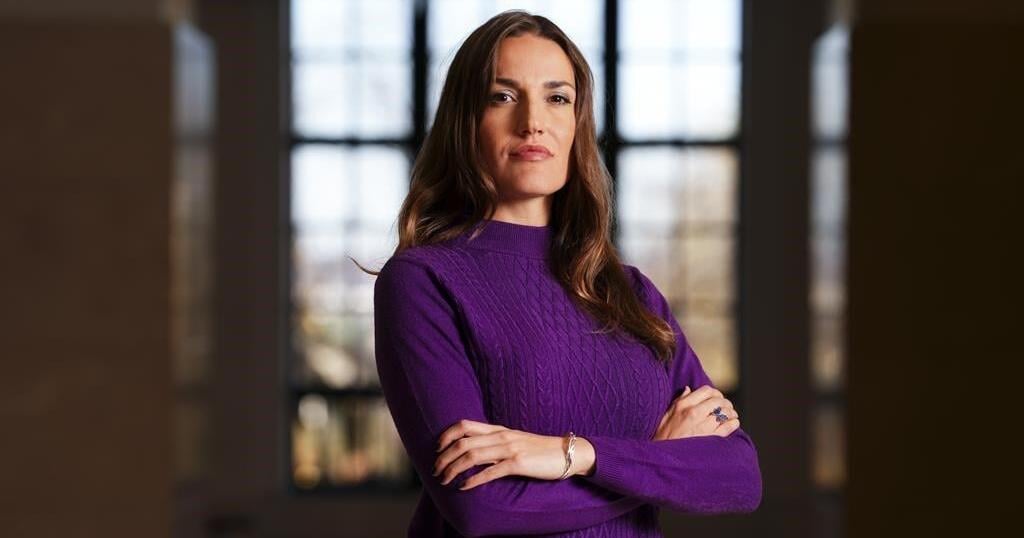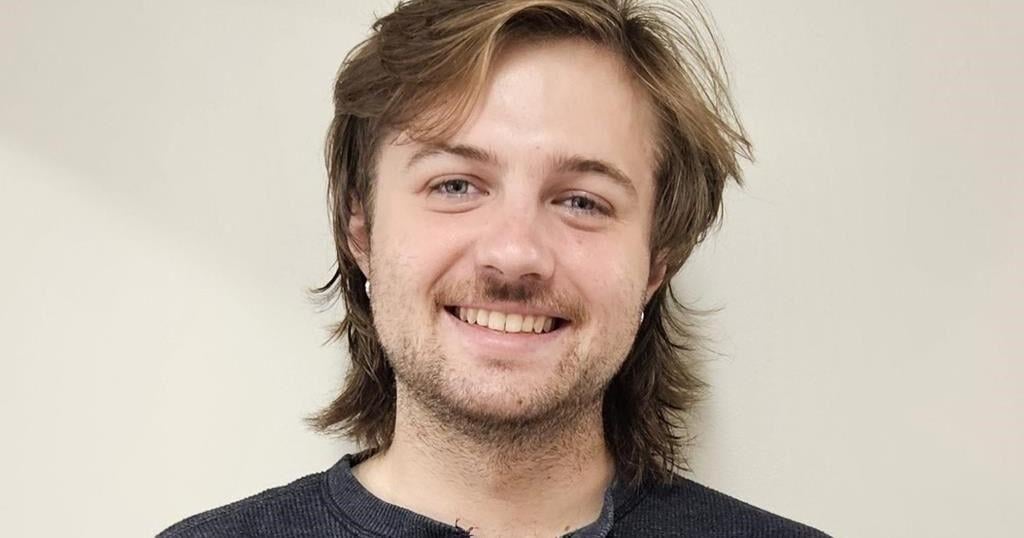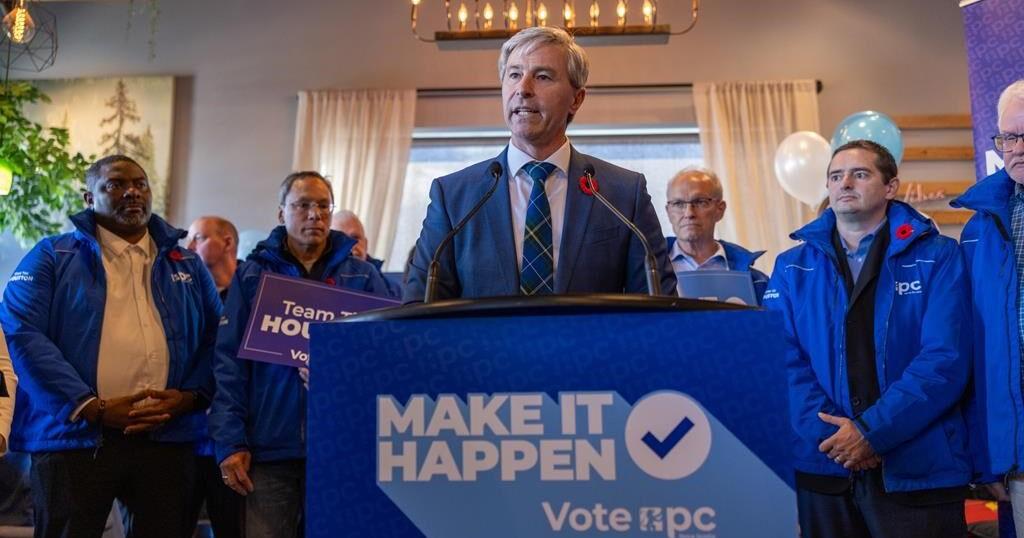When police turned up at Melanie Hatton’s home in Kelowna, B.C., in November 2021, she says they found her in the bathroom covered in blood, her then-husband Jeffrey Maclean was standing over her “in an aggressive manner.”
She describes a gruesome scene in a court filing, with blood from her head wound allegedly smeared on Maclean’s mouth from his whispering in her ear. The filing in a civil lawsuit against Maclean says he tolda 911 operator his wife was “bleeding like a pig.”
Hatton said police and prosecutors told her that the criminal case against Maclean in B.C. Supreme Court would be a “slam dunk,” and he was charged with assault causing bodily harm and resisting arrest.
But the case was thrown out in August 2023 — not for a lack of evidence, but because the Crown took too long to bring it to trial under a set of strict timelines that have reshaped the way criminal cases are handled since a landmark 2016 ruling by the Supreme Court of Canada.
Supporters say the so-called Jordan ruling has sped up proceedings and strengthened Charter rights for prompt justice.
But the legacy of Jordan is mixed, and some victims say the time limits work in criminals’ favour. Eight years into the rules, cases continue to collapse because the time limits are breached, although these represent a small fraction of all cases.
A review of statistics provided by provinces and territories shows that since the beginning of last year, more than 400 criminal cases countrywide have been dismissed, stayed or withdrawn as a result of Jordan challenges.
Among the defendants were some accused of sexual assault, child exploitation, fraud and drug trafficking; murder cases have also been thrown out in previous years.
The case against Maclean was among those dropped.
Hatton said she was thrown into “an absolute pit of despair and shame” after the case was thrown out.
Prosecutors blamed factors including COVID-19 and the availability of Maclean’s lawyer for the delays and the failure of the case.
Hatton thought otherwise, and sent a one-line email to the Crown prosecutor.
“I said ‘this is on you,'” said Hatton, who now lives in Ontario with the couple’s two children.
None of the allegations in Hatton’s civil suit against Maclean have been proven or tested in court, and in his response, Maclean “denies each and every allegation.”
A ‘REVOLUTIONARY’ RULING
The Jordan ruling imposed “a presumptive ceiling” of 18 months between charge and the actual or anticipated end of a trial in provincial court, and 30 months in superior courts.
Barring “exceptional circumstances,” exceeding those limits was deemed by the country’s top court to breach the Canadian Charter, which requires that criminal defendants “be tried within a reasonable time.”
Exactly how long “reasonable” meant was unclear until the high court’s ruling in R. V. Jordan.
The case would upend criminal law practice countrywide, but B.C. lawyer Tony Paisana, who was involved in the trial, didn’t know just how significant it would be at the time.
“Looking back, it’s certainly difficult to say that we, any of us, really expected this to come out the way that it did and how revolutionary it was going to be,” he said in an interview.
The case started modestly enough in December 2008 with the arrest of an alleged drug dealer named Barrett Jordan in Langley, B.C., along with a number of others who police accused of running a “dial-a-dope” operation.
It took more than four years from Jordan being charged to the end of his original trial.
He unsuccessfully argued that his Charter rights to a timely trial had been breached in both the B.C. Supreme Court and Court of Appeal before it ended up in the Supreme Court of Canada.
Paisana and colleagues Eric Gottardi and Richard Peck argued that the right to a timely trial went back hundreds of years, quoting the 1215 Magna Carta in their submissions.
Paisana said the high court’s decision in Jordan “completely achieved its intended objective, which was to speed up criminal trials.”
“And to have various judicial participants, that being the judge, the Crown, the defence, the accused, everyone start paying attention to the timeliness of trials,” he said.
“It was a chronic problem that existed in our system and Jordan was what we call in the law a ‘clarion call’ to change the culture that surrounded criminal trials.”
He said cases were stayed for unreasonable delays before this case, but Jordan established new thresholds.
“There’s just a greater confidence in the justice system when things are resolved more quickly,” he said. “I think it’s a net positive effect that the judgments had. It’s not without its controversy, but nothing that we do is without its controversy, frankly.”
The debate over Jordan was reignited in B.C. this summer, after a case was dismissed against a man accused of molesting a six-year-old.
Premier David Eby said at the time it was due to a “perfect storm” of delays, and that “not one case should be dismissed this way.”
The Jordan deadlines, he said, had been “very restrictive” and “devastating in other provinces.”
Among at least 409 Jordan challenges that ended cases across Canada since the start of last year were 26 in B.C., involving allegations ranging from fraud, to theft, drug and weapons offences, and sexual assault.
“Every case that is judicially stayed due to delay is a concern. Victims and the public expect to see cases determined on their merits and not dismissed because of unreasonable delay,” the B.C. Ministry of Attorney General said in a statement.
“We have taken this issue seriously and invested in transforming processes and increasing resources to prevent judicial stays,” the statement said.
In Maclean’s case, the B.C. Supreme Court found in August 2023 that his trial had been set “well beyond the Jordan limits,” through no fault of the defence, nor any delay caused by COVID-19 interruptions of court operations.
“If the Crown had not failed in its disclosure obligations,” the judge wrote, “the matter would have likely concluded within the Jordan limits.”
‘A HUGE NEGATIVE IMPACT’
Stacey Purser, a criminal defence lawyer in Edmonton, said Jordan had not resulted in the “culture of urgency that I think the Supreme Court was trying to create.”
“Unfortunately, I don’t think that much really has changed since Jordan other than to say that, you know, once you get past those presumptive deadlines, people seem to be in quite a panic to get things done,” she said.
Vancouver defence lawyer Kyla Lee, who specializes in impaired driving cases, said Jordan has had a “huge negative impact on not just my practice, but the practice of law generally for criminal lawyers.”
“The problem is that now every time you go to court, no matter what the purpose of the appearance is, there is always a discussion about Jordan,” she said. “It comes up at every single appearance and it’s gotten to the point where the ceilings in Jordan are effectively being weaponized against accused individuals.”
With a busy schedule, finding court dates that work for both her and prosecutors is challenging, and the inability to agree results in arguments over who’s to blame. Judges have to conduct “microscopic analysis” to determine the length and cause of trial delays, Lee said.
“It has made everything far more complex, far more contentious, and it’s really done a disservice to the timely administration of justice because more court time is being taken up simply to address these issues,” she said.
Former Toronto resident Cait Alexander, a Canadian model and actress now living in Los Angeles, founded the group End Violence Everywhere after an abusive relationship nearly ended her life, alleging her ex-partner brutally beat her with a wooden rolling pin in July 2021.
Multiple charges were stayed due to delays, and Alexander said she felt “disgusting” after having received assurances from prosecutors that the case would go ahead.
She said the only consequence against her ex-boyfriend — who was originally charged with assault causing bodily harm, uttering threats, obstruction and other offences — was a peace bond, and she left the country in fear of her safety.
“That’s all they could offer me because they didn’t have time to prosecute my case,” she said.
Alexander testified before the House of Commons Standing Committee on the Status of Women this past July, recounting stories of survivors including Hatton, whose experience she called “harrowingly similar” to her own.
In her testimony, Alexander told members of the committee that the “government doesn’t care” about survivors and victims of intimate partner violence.
“We, as Canadians, have Charter rights that are essentially a ‘get out of jail free’ card for criminals, but what about survivors’ rights? Why are our Charter rights never accounted for?,” she testified.
Like Hatton, she’s suing her ex-boyfriend because it’s “the only form of legal justice I have left,” she told the committee.
Alexander testified to the committee again last week, telling members that Jordan timelines shouldn’t apply in cases of sexual assault or intimate partner violence.
“There should be no time limit or stay permitted with human-on-human crimes,” she testified, later tearfully describing the Jordan rules as “sickening” and “terrifying.”
Paisana said it was important to keep in mind the “bigger picture” of Jordan, the importance of timely trials and the rights of accused persons who are presumed innocent until proven guilty.
“It benefits society as a whole in a very dramatic way, as opposed to one or two individual cases in a given a year, in a given jurisdiction, that might be stayed as a result of it,” he said.
For Hatton, the collapse of the case against her ex-husband was devastating, and continues to influence her life. She now has multiple security systems in her new home after fleeing her old life in B.C.
In October 2023, Hatton filed her civil lawsuit against Maclean in B.C. Supreme Court, alleging a “history of abuse” throughout their relationship, seeking damages for assault, intentional infliction of emotional distress and defamation.
She said getting a relocation order allowing her to move out of B.C. with her children is a “slight bit of justice.”
But she now lives in a state of hyper vigilance.
“I sleep with a golf club beside my bed,” she said.
This report by The Canadian Press was first published Nov. 8, 2024.


























